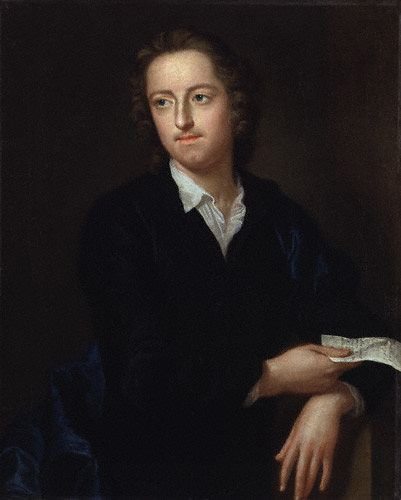Fuente: Ode on the Pleasure Arising from Vicissitude http://www.thomasgray.org/cgi-bin/display.cgi?text=oopv (1754), Line 93
Thomas Gray: Frases en inglés
St. 1
On the Death of a Favourite Cat http://www.thomasgray.org/cgi-bin/display.cgi?textodfc (1747)
St. 7
On the Death of a Favourite Cat http://www.thomasgray.org/cgi-bin/display.cgi?text=odfc (1747)
"The Triumphs of Owen. A Fragment", from Mr. Evans's Specimens of the Welch Poetry (1764) http://www.thomasgray.org/cgi-bin/display.cgi?text=trow
St. 6
Ode on a Distant Prospect of Eton College http://www.thomasgray.org/cgi-bin/display.cgi?text=odec (written 1742–1750)
“I shall be but a shrimp of an author.”
Letter to Horace Walpole http://www.thomasgray.org/cgi-bin/display.cgi?text=tgal0527 (February 25, 1768)
The Epitaph, St. 1
Elegy Written in a Country Churchyard http://www.thomasgray.org/cgi-bin/display.cgi?text=elcc (written 1750, publ. 1751)
“Save that from yonder ivy-mantled tow'r
The moping owl does to the moon complain.”
St. 3
Elegy Written in a Country Churchyard http://www.thomasgray.org/cgi-bin/display.cgi?text=elcc (written 1750, publ. 1751)
“What sorrow was, thou bad'st her know,
And from her own she learned to melt at others' woe.”
Hymn to Adversity http://www.thomasgray.org/cgi-bin/display.cgi?text=otad, St. 2 (1742)
Ode for Music http://www.thomasgray.org/cgi-bin/display.cgi?text=ocmu (1769), V, line 8
“Ye distant spires, ye antique towers,
That crown the wat'ry glade.”
St. 1
Ode on a Distant Prospect of Eton College http://www.thomasgray.org/cgi-bin/display.cgi?text=odec (written 1742–1750)
“Too poor for a bribe, and too proud to importune,
He had not the method of making a fortune.”
On His Own Character http://www.thomasgray.org/cgi-bin/display.cgi?text=skoc (1761)
“Far from the sun and summer-gale,
In thy green lap was Nature's Darling laid.”
III. 1, Line 1
The Progress of Poesy http://www.thomasgray.org/cgi-bin/display.cgi?text=pppo (1754)
St. 15
Elegy Written in a Country Churchyard http://www.thomasgray.org/cgi-bin/display.cgi?text=elcc (written 1750, publ. 1751)
“And moody madness laughing wild
Amid severest woe.”
St. 8
Ode on a Distant Prospect of Eton College http://www.thomasgray.org/cgi-bin/display.cgi?text=odec (written 1742–1750)
“Where through the long-drawn aisle and fretted vault
The pealing anthem swells the note of praise.”
St. 10
Elegy Written in a Country Churchyard http://www.thomasgray.org/cgi-bin/display.cgi?text=elcc (written 1750, publ. 1751)
“The social smile, the sympathetic tear.”
Education and Government; reported in Bartlett's Familiar Quotations, 10th ed. (1919)
St. 28
Elegy Written in a Country Churchyard http://www.thomasgray.org/cgi-bin/display.cgi?text=elcc (written 1750, publ. 1751)
“Brushing with hasty steps the dews away,
To meet the sun upon the upland lawn.”
St. 25
Elegy Written in a Country Churchyard http://www.thomasgray.org/cgi-bin/display.cgi?text=elcc (written 1750, publ. 1751)
“To high-born Hoel's harp, or soft Llewellyn's lay.”
I. 2. line 28
The Bard (1757)
“O'er her warm cheek and rising bosom move
The bloom of young Desire and purple light of Love.”
I. 3, Line 16
The Progress of Poesy http://www.thomasgray.org/cgi-bin/display.cgi?text=pppo (1754)
“And many a holy text around she strews,
That teach the rustic moralist to die.”
St. 21
Elegy Written in a Country Churchyard http://www.thomasgray.org/cgi-bin/display.cgi?text=elcc (written 1750, publ. 1751)
“Glance their many-twinkling feet.”
I. 3, Line 11
The Progress of Poesy http://www.thomasgray.org/cgi-bin/display.cgi?text=pppo (1754)
“Visions of glory, spare my aching sight,
Ye unborn ages, crowd not on my soul!”
III. 1. lines 107-108
The Bard (1757)
To Mr. West, Letter iv, Third Series; reported in Bartlett's Familiar Quotations, 10th ed. (1919)
“Iron sleet of arrowy shower
Hurtles in the darkened air.”
The Fatal Sisters http://www.thomasgray.org/cgi-bin/display.cgi?text=fsio (1761), line 3
“And hie him home, at evening's close,
To sweet repast and calm repose.”
Fuente: Ode on the Pleasure Arising from Vicissitude http://www.thomasgray.org/cgi-bin/display.cgi?text=oopv (1754), Line 87
“The breezy call of incense-breathing morn.”
St. 5
Elegy Written in a Country Churchyard http://www.thomasgray.org/cgi-bin/display.cgi?text=elcc (written 1750, publ. 1751)
Hymn to Adversity http://www.thomasgray.org/cgi-bin/display.cgi?text=otad, St. 1 (1742)
